Why Teach in New Jersey? A Teacher Shares Her Pathway to NJ Teacher Certification.

Julie Donahue
BA Elementary Education and Spanish
Rowan University
Teacher of the Year, Swedesboro-Woolwich School District
New Jersey
My Journey to NJ Teacher Certification
I knew from a very young age I wanted a career in public service. As a teacher, you possess the power to make a difference in so many children's lives, making this one of the most rewarding and captivating career pathways. I enjoy the ability to construct creative and engaging lessons that allow students to develop intrinsic and extrinsic motivation about some of the most fascinating topics daily. In addition, teaching allows you to make meaningful connections that extend beyond the classroom to include parents and community members. These reasons led me to teach in New Jersey.
What is it Like to be a New Teacher in New Jersey?
I began my teaching career in 2008 as a Spanish teacher in a rural district in New Jersey, where I taught kids in grades three to five. At the beginning of my career, I faced challenges but was also provided with many learning opportunities. These opportunities included collaboration with fellow teachers from diverse backgrounds and experiences. The opportunity to learn from others was an amazing experience. After only a few short years, I was recognized in 2013 as Teacher of the Year by my school district in Swedesboro-Woolwich, New Jersey.
Some challenges many new teachers face include being confident enough to ask questions. To help with this, new teachers should attend as many professional development opportunities the school has to offer. Most districts offer summer opportunities, allowing for opportunities for mentoring from experienced teachers with an in-depth understanding of your curriculum and district. In addition, taking advantage of these experiences allowed me to deepen and refine my teaching skills and to better understand the needs of my student and community. As a new teacher, these experiences are incredibly valuable. Not only do they allow you to refine your skills, but they also allow you to build relationships with your colleagues and your district leadership.
Finally, if you want to teach in New Jersey, you should get to know the community and families within your district. You will make connections and facilitate learning opportunities for your students. This will help make your lessons even more meaningful, and they will transfer as your students transition from school to home. New Jersey's school districts are so diverse, and developing an understanding of the community you are teaching in will help you connect with your students. This is the goal of teaching!
Why Teach in New Jersey?
According to US News and World Report, New Jersey has consistently ranked among the top in the nation for public education. New Jersey is always at the forefront of the most influential research to support learners, including both their academic and social-emotional needs. New teachers may find this to be a challenge. As you prepare to teach in New Jersey, you will be faced with rigorous lesson plan expectations, documentation processes, research, and grading expectations.
However, you will also have a team of amazing faculty, staff, colleagues, and mentors who will support you throughout your courses. You will be able to observe and learn from professionals in the field, ask questions, gain knowledge, and apply course content in real-world scenarios. Teachers in New Jersey undergo a rigorous annual evaluation process which ensures they can apply their knowledge and skills to support students at all levels. Also, they are backed by a strong community of families, administrators and, above all, supportive colleagues with whom they can collaborate to continuously develop their own skills as educators.
Mentoring New Jersey Teachers
Mentoring new teachers in my school and district is one of the highlights of my career. I enjoy coaching teachers as they develop their skills in classroom management, lesson planning, and using data to support student growth. I have mentored a number of student and new teachers and I find this so rewarding. I'm always excited to see talented educators into the teaching profession. This benefits our students and our colleagues!
My approach to mentoring new teachers is to listen as much as I talk. I strive to model effective practices such as collaboration with other education professionals like school counselors. I share my process for developing lesson plans and aligning curriculum to state standards. This helps new teachers understand the requirements of the profession and prepare to teach in New Jersey.
Student teachers can sometimes be overwhelmed with their education and certification requirements in combination with being in the classroom for the first time. In addition, it is rewarding to share resources and materials with them and to guide them through this process. Watching the excitement on a student teacher's face as they effectively implement a lesson is just as exciting for me as that lesson is for them.
How Should You Prepare for NJ Teacher Certification?
New Jersey offers multiple teacher preparation programs pathways, including traditional, university-based programs as well as alternate routes to certification. Your preparation will include coursework, foundations of education such as classroom management and learning theory, and content-specific courses. New Jersey also requires you to spend significant time in classrooms working with children. To teach in New Jersey, you must develop real-world experience, which will help you apply the knowledge you've gained in your training in school settings.
Part of becoming a teacher in New Jersey is passing the required Praxis exams. Depending on your certification area, you may need to take multiple exams to earn your certification. These may be challenging, but these allow you to show your skills related to your certification area.
New Jersey requires you to take exams to enter your teacher preparation program. These include tests of your basic knowledge of Reading, Writing, and Math. Then, depending on your preparation program, you will likely be required to take specific content-knowledge Praxis® exams prior to student teaching or prior to applying for certification. For example, as an elementary teacher, I was required to take and pass the Elementary Education Multiple Subjects Test (5001) which includes four sub-tests focusing on English Language Arts, Math, Science, and Social Studies. Passage Preparation's courses are designed to meet your needs and help you study for your certification test with engaging content and practice tests aligned to your certification tests. The company offers diagnostic assessments and practice assessments that will help you master the content covered on your exam.
NJ Teacher Certification Requirements
To teach in New Jersey, you must hold a Bachelor's degree from a regionally accredited college or university and obtain passing scores on the required NJ teacher certification tests.
In addition, you are required to present transcripts showing you meet the content and pedagogical training requirements for your area. You can find these requirements in the New Jersey Certification rules. New Jersey also offers a Teacher Toolkit, which provides resources and support for teachers.
New Jersey has approved multiple pathways for meeting the content and pedagogical requirements mentioned above.
In additional, you may enroll in university or college-based educator preparation programs, including a Baccalaureate program leading to licensure or a combined Baccalaureate/Master's program leading to licensure. The latter typically requires four to five years of study.
In each of these instances, your preparation program will share program-specific requirements, which may include:
- School-based experiences, including practica and student teaching or internship experience
- Completion of a portfolio highlighting your performance on key program-based assessments
- Multiple observations by program faculty and mentors during your student teaching experience
Tests Required to Teach in New Jersey
Early Childhood & Elementary
Middle Grades
Secondary
How to Study for NJ Teacher Certification Tests
Studying for NJ Teacher Certification tests can be challenging. When I began to prepare for the Praxis® Elementary Education Multiple Subjects Tests (5001), a large part of my stress was finding the right study materials. Passage Preparation™ provides comprehensive courses to prepare you for your certification test and ensure your test-taking needs are met. Here are some of my testing tips and tricks:
- Map out your study plan. Not only is the content important to know to be successful on the Praxis® Exam, but backwards-mapping is also an important skill as an educator. It is crucial to spend significant time reviewing the material. Passage Preparation's asynchronous courses allow you to develop a study plan. This plan is developed to best fits your personal and professional goals and responsibilities. Also, by mapping out your study plan, you can accommodate for your current schedule and still master the content and standards you are required to demonstrate on your NJ teacher certification test.
- Next, review and evaluate your progress on your study plan as you prepare. Passage Preparation's assessments throughout the course will help you determine content that you should revisit to develop mastery.
- Finally, remember your "why." When we work intensely toward a goal, we can forget why we want to achieve it in the first place. While I was studying for my teacher preparation tests, I thought about the children that I would serve in my new position. I suggest finding an outlet that helps you remember why you are going through this process. Is it your love of literature, math, or social studies? Is it your love of children? Your commitment to education? Or is it all of the above? Ultimately, keep your goal at the forefront of your mind as you prepare for your exams. This increases your motivation and, ultimately, your success.









